Hailing diplomacy, Trump announces new North Korea summit in Vietnam
US president said he would meet the North Korean leader on February 27 and 28 in Vietnam
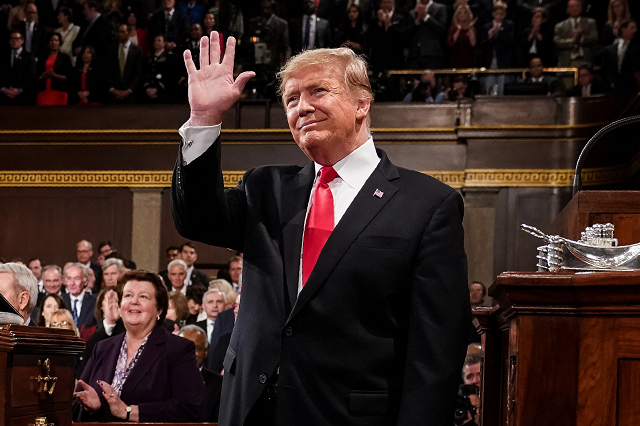
US President Donald Trump. PHOTO: AFP
Delivering his annual State of the Union address to Congress after being politically battered by a partial government shutdown, Trump hailed his diplomacy with North Korea and seized on the drama of the setting to reveal his long-planned second summit with leader Kim Jong Un.
Trump said he would meet the elusive young leader on February 27 and 28 in Vietnam, although he did not specify the venue.
"Our hostages have come home, nuclear testing has stopped, and there has not been a missile launch in 15 months," Trump told lawmakers assembled in the House chamber.
"If I had not been elected President of the United States, we would right now, in my opinion, be in a major war with North Korea. Much work remains to be done, but my relationship with Kim Jong Un is a good one," he said.
Trump met Kim in June in Singapore, the first-ever summit between leaders of the two countries that have never formally ended the 1950-53 Korean War, months after the US leader was threatening to obliterate North Korea over its nuclear and missile tests.
Kim warns North Korea could consider change of tack
Since the summit, Trump has since mused that he and Kim have fallen "in love" and voiced eagerness to meet him, although critics say that North Korea's promises remain vague.
The two leaders in Vietnam will need to work out the meaning of North Korea's promise in Singapore of "denuclearisation," with Kim envisaging an end to all weapons in the peninsula rather than quickly giving up the arsenal built for decades by the totalitarian dynasty.
The US special envoy on North Korea, Stephen Biegun, heads Wednesday for talks in Pyongyang on preparing the summit.
Biegun said last week that, while not lifting all sanctions without denuclearisation, Washington was ready to take first steps to support North Korea's badly needed economic development.
Trump, in a speech focused primarily on domestic priorities including his tough line on immigration, cast himself as a realist in the world, saying he is pursuing "a foreign policy that puts America's interests first."
"Great nations do not fight endless wars," Trump said, after his controversial orders to pull all US troops out of Syria and half of the 14,000-strong force in Afghanistan.
North, South Korea agree to pursue joint 2032 Olympic Games bid
Trump voiced guarded hope that intensifying negotiations with Afghanistan's Taliban would bring for a "possible political solution" to end the longest-ever US war.
"My administration is holding constructive talks with a number of Afghan groups, including the Taliban," he said.
"We do not know whether we will achieve an agreement -- but we do know that after two decades of war, the hour has come to at least try for peace," he said.
US envoy Zalmay Khalilzad in January held an unusually long six days of negotiations with Taliban representatives in Qatar.
While Khalilzad has stressed that much remains to discuss, the broad goal would be for the United States to pull troops from Afghanistan and for the Taliban to ensure that foreign extremists will not be based on its territory -- the reason for the US invasion after the September 11, 2001 attacks.
But the Taliban have refused to negotiate with the internationally recognized government in Kabul. Afghan President Ashraf Ghani tweeted ahead of Trump's speech that he had spoken to Secretary of State Mike Pompeo, who "underscored the central importance of ensuring the centrality of the Afghan government in the peace process."
In contrast to Trump's frequent instincts to stay out of foreign conflicts, he has intervened forcefully in the crisis in Venezuela where he has recognized opposition leader Juan Guaido as the interim president.
In his address, Trump tied Venezuela to US politics as he tried to equate liberal opponents at home with Venezuelan President Nicolas Maduro, whose leftist regime presides over a crumbling economy that has sent millions fleeing to neighboring countries.
"We stand with the Venezuelan people in their noble quest for freedom -- and we condemn the brutality of the Maduro regime, whose socialist policies have turned that nation from being the wealthiest in South America into a state of abject poverty and despair," Trump said.
"We are born free, and we will stay free. Tonight, we renew our resolve that America will never be a socialist country," he said to boisterous cheers from Republicans.
Left-leaning US lawmakers have rejected such comparisons, saying that their calls for a higher minimum wage and a more stable safety net has nothing to do with the corruption and mismanagement of Venezuela.

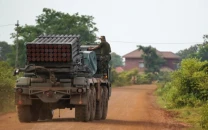
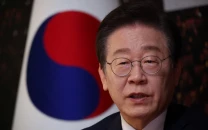
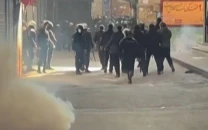
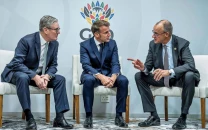

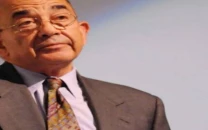












COMMENTS
Comments are moderated and generally will be posted if they are on-topic and not abusive.
For more information, please see our Comments FAQ